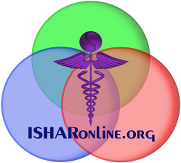From the perspective of the terror management health model (TMHM), expectancies as to whether a health behavior is likely to effectively protect one's health (i.e., response efficacy) and whether an individual is optimistic about the outcomes of his or her health risk assessment (i.e., health optimism) should have a more potent influence on health decisions when thoughts of death are conscious and the health risk domain is potentially fatal. Supporting this, health optimism and response efficacy were found to moderate skin cancer prevention intentions in response to conscious, but not nonconscious, reminders of death,whereas this same relationship was not found in the context of priming thoughts associated with uncertainty. Moreover, these effects were not observed in response to nonfatal dental care outcomes. Discussion focuses on the implications of TMHM for existing health models and health promotion.
Examining the Terror Management Health Model: The Interactive Effect of Conscious Death Thought and Health-Coping Variables on Decisions in Potentially Fatal Health Domains
Categories:
Language:
English
Short Title:
Examining the Terror Management Health Model
Abstract:
Item Type:
Journal Article
Publication Title:
Personality & Social Psychology Bulletin
Journal Abbreviation:
Pers Soc Psychol Bull
Publication Date:
2010-07
Publication Year:
2010
Pages:
937-946
Volume:
36
Issue:
7
ISSN:
1552-7433
DOI:
10.1177/0146167210370694
Library Catalog:
PubMed
Extra:
PMID: 20519572
Douglas P. Cooper, Jamie L. Goldenberg and Jamie Arndt. 2010-07. "Examining the Terror Management Health Model: The Interactive Effect of Conscious Death Thought and Health-Coping Variables on Decisions in Potentially Fatal Health Domains." Personality & Social Psychology Bulletin 36: 7: 937-946. 10.1177/0146167210370694.
<ref> {{Cite journal
| doi = 10.1177/0146167210370694
| issn = 1552-7433
| volume = 36
| pages = 937-946
| last = Cooper
| first = Douglas P.
| coauthors = Goldenberg, Jamie L., Arndt, Jamie
| title = Examining the Terror Management Health Model: The Interactive Effect of Conscious Death Thought and Health-Coping Variables on Decisions in Potentially Fatal Health Domains
| journal = Personality & Social Psychology Bulletin
| date = 2010-07
| pmid =
| pmc =
}} </ref>
